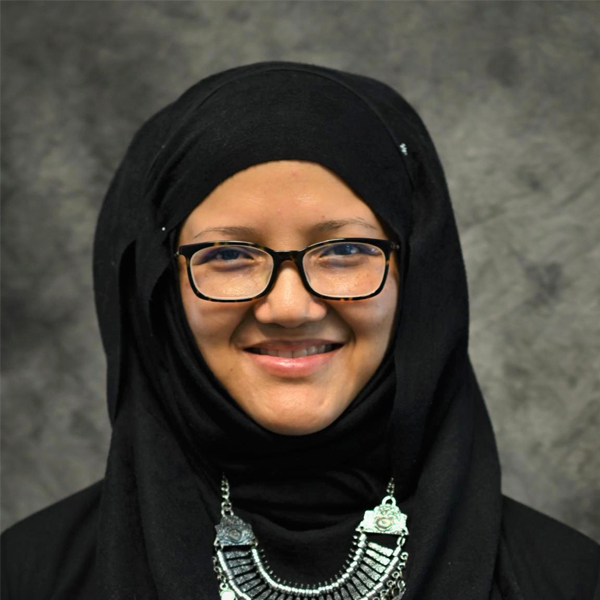A/Prof Citra Mattar
My chosen field is fetal molecular therapy: utilizing stem cell transplantation and gene therapy in the developing fetus to correct or mitigate the effects of monogenic diseases to rescue the fetus from a life-threatening condition. This involves the sciences of stem cell biology, viral vector technology, applied genetics and molecular biology, immunology and haematology. I aspire to shepherd fetal stem cell therapies, and eventually gene therapy, into clinical practice. They have the potential to be game-changers in fetal medicine, improving survival and outcomes for offspring affected by otherwise incurable conditions.
The diseases I have targeted in my research include haemophilia B and other coagulopathies, the major thalassaemias and neurogenetic disorders. Pathologies start in utero or in the early perinatal period and are perinatally fatal or lead to chronic and relapsing illnesses after birth. The principle driving intrauterine therapy is that treating the fetus early in the disease process prevents (or at least mitigates) the clinical condition, reducing perinatal mortality and long-term morbidity of the affected child.
My research group currently focuses on approaches that can be used to treat any major haemoglobinopathy, starting with the fetus and continuing postnatally with the infant if needed, namely understanding the reactions between the maternal immune system and allogenic cells transplanted into the fetus, and improving the engraftment ability of transplanted cells in the hyperplastic and aberrant thalassaemic bone marrow. My objective is to understand the role of maternal immune trafficking in intrauterine haemopoetic stem cell transplantation (IUT) and utilize its potential as a clinically-translatable strategy.
My research also focuses on strategies to overcome the aberrant haemopoietic microenvironment in the thalassaemic bone marrow to enhance and improve the efficacy of donor cell engraftment through a process of donor HSC priming via co-culture with mesenchymal stem cells (MSC) prior to transplantation. This may be a safer way to overcome the significant microenvironmental barrier in thalassaemic recipients because it avoids genetic manipulation of donor cells and immunosuppression of the recipient.
My research encompasses intrauterine in vivo gene therapy (IUGT) for haemophilia and thalassaemia, in which animal models of fetuses affected with these conditions are treated with transgenes packaged viral vectors with the aim of replacing the original abnormal gene with the new normal gene, to arrest or mitigate the damage in affected fetuses during development.
My research is funded by the National Medical Research Council (NMRC, Research Fellowship, Transition Award, Clinician-Scientist Award), Ministry of Education (MOE Tier 1 grant) and the National University Health System (NUHS seed grants).
Publications
- Chan, J., Gil-Farina, I., Johana, N., Rosales, C., Tan, Y. W., Ceiler, J., Mcintosh, J., Ogden, B., Waddington, S. N., Schmidt, M., Biswas, A., Choolani, M., Nathwani, A. C., & Mattar, C. (2019). Therapeutic expression of human clotting factors IX and X following adeno-associated viral vector-mediated intrauterine gene transfer in early-gestation fetal macaques. FASEB journal : official publication of the Federation of American Societies for Experimental Biology, 33(3), 3954–3967. https://doi.org/10.1096/fj.201801391R
- Massaro, G., Mattar, C., Wong, A., Sirka, E., Buckley, S., Herbert, B. R., Karlsson, S., Perocheau, D. P., Burke, D., Heales, S., Richard-Londt, A., Brandner, S., Huebecker, M., Priestman, D. A., Platt, F. M., Mills, K., Biswas, A., Cooper, J. D., Chan, J., Cheng, S. H., … Rahim, A. A. (2018). Fetal gene therapy for neurodegenerative disease of infants. Nature medicine, 24(9), 1317–1323. https://doi.org/10.1038/s41591-018-0106-7
- Dighe, N. M., Tan, K. W., Tan, L. G., Shaw, S., Buckley, S., Sandikin, D., Johana, N., Tan, Y. W., Biswas, A., Choolani, M., Waddington, S. N., Antoniou, M. N., Chan, J., & Mattar, C. (2018). A comparison of intrauterine hemopoietic cell transplantation and lentiviral gene transfer for the correction of severe β-thalassemia in a HbbTh3/+ murine model. Experimental hematology, 62, 45–55. https://doi.org/10.1016/j.exphem.2018.03.006
- Mattar, C., Gil-Farina, I., Rosales, C., Johana, N., Tan, Y., McIntosh, J., Kaeppel, C., Waddington, S. N., Biswas, A., Choolani, M., Schmidt, M., Nathwani, A. C., & Chan, J. (2017). In Utero Transfer of Adeno-Associated Viral Vectors Produces Long-Term Factor IX Levels in a Cynomolgus Macaque Model. Molecular therapy : the journal of the American Society of Gene Therapy, 25(8), 1843–1853. https://doi.org/10.1016/j.ymthe.2017.04.003
- Götherström, C., Westgren, M., Shaw, S. W., Aström, E., Biswas, A., Byers, P. H., Mattar, C. N., Graham, G. E., Taslimi, J., Ewald, U., Fisk, N. M., Yeoh, A. E., Lin, J. L., Cheng, P. J., Choolani, M., Le Blanc, K., & Chan, J. K. (2014). Pre- and postnatal transplantation of fetal mesenchymal stem cells in osteogenesis imperfecta: a two-center experience. Stem cells translational medicine, 3(2), 255–264. https://doi.org/10.5966/sctm.2013-0090
- Atala, A. J., Chan, J. K., Choolani, M., Mattar, C. N., & Williams, J. K. (2013). Stem Cell Therapies in Obstetrics and Gynaecology: The Female Urogenital Tract and the Fetus as Sources and Targets for Molecular and Regenerative Medicine. Royal College of Obstetricians and Gynaecologists. Retrieved from https://www.rcog.org.uk/en/guidelines-research-services/guidelines/sip38/

